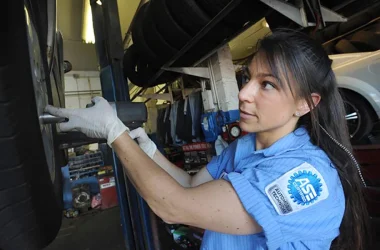Used cars may be affordable, safe, and dependable. Finding a safe secondhand automobile requires research. This article discusses five crucial recommendations to assist you navigate the process and make a good decision.
Setting a budget
Set a budget before hunting for a secondhand automobile. Add the purchase price, taxes, registration, insurance, and any repair or maintenance fees to determine your budget. If you know your budget, you may narrow your selections and avoid getting misled by pricey automobiles. Consider credit options and lower your monthly payments if necessary.
Researching the Market
After determining your budget, research the market. First, identify affordable brands and varieties that fit your needs. Learn about automotive reliability, common issues, and market value on Kelley Blue Book, Edmunds, and Consumer Reports. Local listings on Autotrader, Craigslist, and shop sites may show you how prices are changing. Older models and automobiles with high mileage should be avoided since they might affect reliability and maintenance expenses.
Checking and testing driving
When you like a secondhand automobile, check it out and test drive it. Seek automobile damage, corrosion, or natural wear and tear. Ensure tires, brakes, and chassis are OK. Trusting a technician is sensible. Check before buying for hidden issues. On the test drive, watch how the vehicle moves, how quickly it accelerates and decelerates, and any weird sounds. Make that the lighting, audio/video system, air conditioning, and heaters operate. A thorough inspection and test drive may help you feel secure in your purchase by exposing issues.
Reviewing Vehicle History Report
Service records, collisions, and title issues are helpful in a secondhand car’s background report. These reports are available from Auto Repair Services in Cincinnati, OH. They can steer you away from troubled autos. Make sure the report’s VIN matches the car’s. Check the report for warning signs such frequent ownership changes or mismatched distances. A clean vehicle history report indicates good upkeep and increases trust in the car’s reliability.
Buying and closing the contract
Once you’ve selected a nice used automobile and checked its history, discuss pricing. Based on your research, make a solid offer. If the vendor won’t negotiate a price within your budget, leave. Ensure all documentation is done correctly before buying. This contains the title transfer, bill of sale, and financing documentation. Beware of hidden fees and read promises and return policies carefully. Following through with the purchase procedure can help you prevent issues and maximize your investment.
Conclusion
It takes effort to purchase a used automobile, but these ideas should help you select one that meets your needs and budget. Successful automobile purchases need a clear budget, extensive research, testing and driving the car, looking at its history, and good haggling. If you plan and prepare, you can buy a dependable used automobile.











